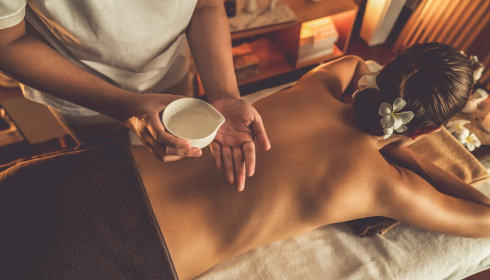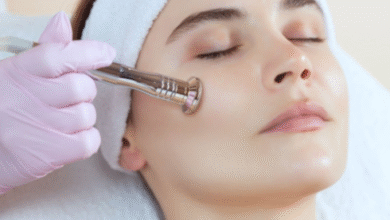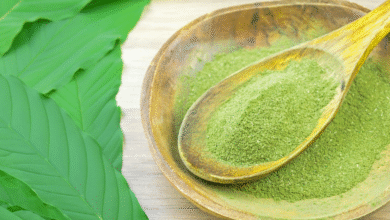My Honest Experience with Traditional Chinese Massage in Melbourne

Melbourne is one of those cities that never really stops moving. From its moody laneways to its buzzing cafés and footy crowd energy, there’s always something happening. And while that’s part of the charm, it’s also why my body — and probably yours too — can sometimes feel like it’s been chewed up and spit out by the daily grind.
So when I first booked a Chinese Massage in Melbourne, I wasn’t expecting a life-changing experience. I just wanted my back to stop screaming after long days hunched at my desk. What I got, though, was far more than relief from stiffness. It was a quiet, surprisingly emotional unraveling of everything I didn’t know I was holding.
It’s Not Your Average Massage
Let’s get this out of the way: Chinese massage isn’t the spa-style pampering with soft music and hot stones. It’s not about flickering candles or essential oils that smell like desserts. What I walked into was something much deeper — more clinical, more focused, and somehow more human.
The therapist didn’t ask me to list my “problem areas” or choose between lavender or peppermint. Instead, she looked at my posture, asked about my digestion and sleep, and began tracing energy lines along my spine like she was reading a map only she could understand.
And then the session began.
I won’t lie — it was intense. At times, even uncomfortable. But never careless. Every press, every hold, had intent. This wasn’t relaxation for the sake of it. This was healing in motion.
Where Tradition Meets Real-Life Stress
What I learned later is that much of what was happening on that table came from thousands of years of traditional Chinese medicine. Techniques like acupressure, meridian stimulation, and energy flow alignment. But even without the historical background, I could feel the difference.
There’s a grounded honesty to the practice — it’s not about quick fixes or chasing trends. It’s about rebalancing what’s already within you. And in a city that thrives on movement, that kind of stillness feels like rebellion.
After my third session, my migraines had noticeably decreased. My sleep deepened. My hips (tight from years of bad posture and worse gym form) started to loosen in ways I hadn’t thought possible.
I wasn’t “cured,” but I was more aware. More connected to what my body was saying.
Enter Tui-na: The Unsung Hero of Chinese Medicine
One term I kept hearing in these clinics was Tui-na Massage in Melbourne. I had no clue what it meant at first — it sounded fancy, but turns out, it’s one of the oldest and most respected forms of Chinese manual therapy. Tui-na (pronounced “twee-nah”) roughly translates to “push and grasp,” and that’s pretty accurate.
The technique is rhythmic, dynamic, and much more interactive than a Swedish massage. Your therapist might stretch you, rock you slightly, apply pressure with elbows or knuckles. It’s not passive. You’re a participant in your own healing. And weirdly enough, you leave feeling lighter — not because anything was removed, but because you were finally heard physically.
What I loved most about Tui-na was that it didn’t separate emotional from physical. It treated the body like a whole — where tight shoulders weren’t just about slouching, but maybe about stress, grief, or even digestion. That holistic lens is something I didn’t realize I was missing until it was offered.
It’s the Little Things That Make the Biggest Difference
Some of the best experiences came from unassuming clinics — you know the ones tucked behind dumpling shops or squeezed between hardware stores and barbershops. No fancy signage. No crystal-infused water. But inside? Magic.
There’s something deeply comforting about being treated in a place where people come not to be pampered but to heal. No upselling. No awkward small talk. Just skilled hands, warm towels, and a quiet confidence that you’re in good care.
In one particular session, the therapist noticed I was clenching my jaw — something I didn’t even realize I’d been doing. She spent extra time on my scalp, neck, and jawline. I walked out not just with looser muscles, but with this bizarre sense of emotional clarity I hadn’t expected. Like I’d been holding in more than I realized.
What to Expect If You’re Curious
If you’re thinking of booking a session but feel unsure, here’s the lowdown:
- You might be sore the next day — That’s normal. Your body is adjusting.
- Drink warm water after — It’s a common post-massage tip in TCM. Helps with circulation and toxin release.
- You can (and should) speak up — Pressure too much? Feeling weird? Say something. A good therapist will adjust.
- Go more than once — While one session can help, consistent visits reveal deeper shifts.
- Don’t expect a spa vibe — This is not about pampering. It’s about deep, functional care.
The Bigger Picture: Healing vs. Fixing
What really struck me over time is how different Chinese massage is from the Western idea of “fixing” the body. Over here, we often treat symptoms. We numb, we brace, we stretch one side because it hurts, without ever asking why that side is hurting.
Chinese massage, especially when paired with other TCM practices, sees pain not just as a nuisance, but as a signal. A thread to follow. A clue about imbalance.
And you don’t have to buy into every theory or switch your GP for an herbalist. You just need to be open. To tune in. To realize that the body speaks in whispers — and this kind of therapy helps you listen before those whispers turn into shouts.
Finding a Trusted Practitioner
Melbourne is blessed with a vibrant Chinese community and a growing appreciation for Eastern medicine. That means you’ve got options. But not all practitioners are the same. Some are highly trained, with deep knowledge of TCM theory. Others are more focused on surface-level techniques.
My advice? Read reviews. Ask friends. Don’t be afraid to shop around. And when you find someone who gets you — who works not just on your muscles but your mood, your rhythm, your habits — stick with them.
Final Thoughts: More Than Just Muscle Relief
When I booked that first massage, I was hoping to crack my back and call it a day. What I didn’t expect was the shift in how I see my body, how I treat my stress, how I walk through the world.
Chinese massage in Melbourne isn’t a luxury — it’s a reset. It’s a way to slow down, even if just for an hour, and remember that your body deserves your attention. Not just when it breaks down, but especially when it whispers for help.



